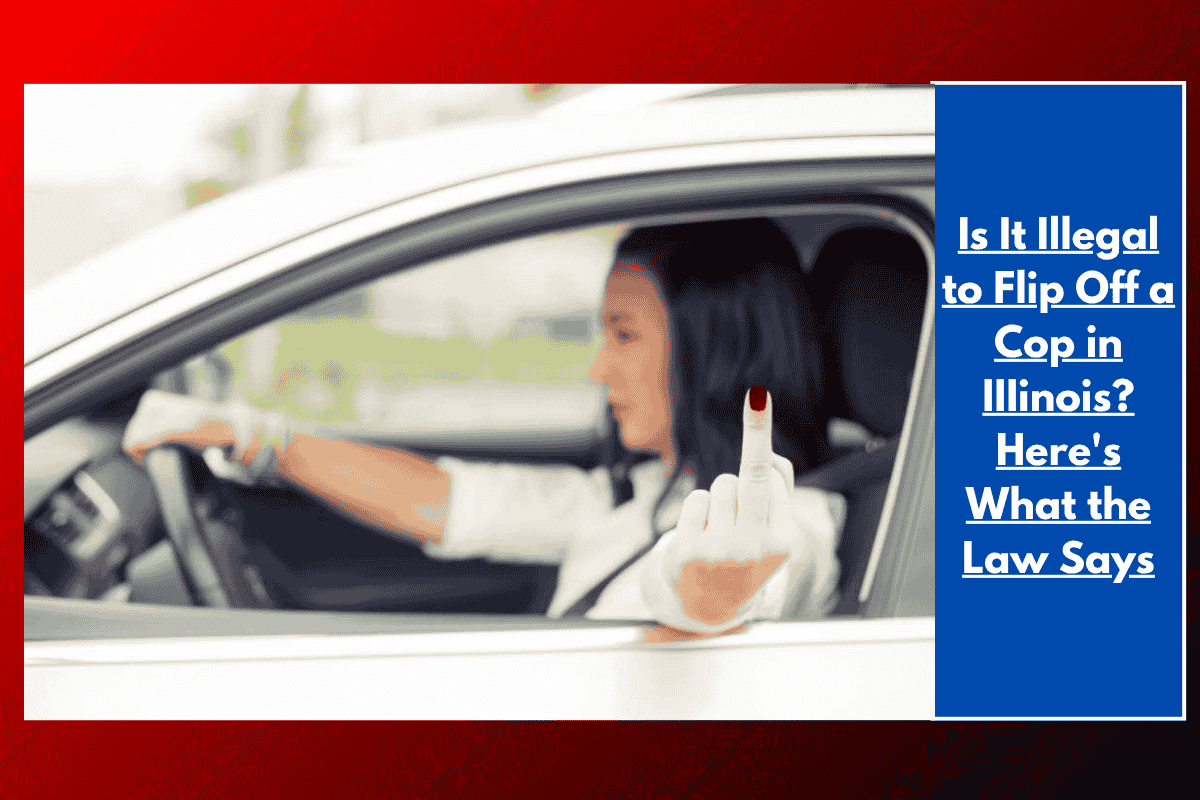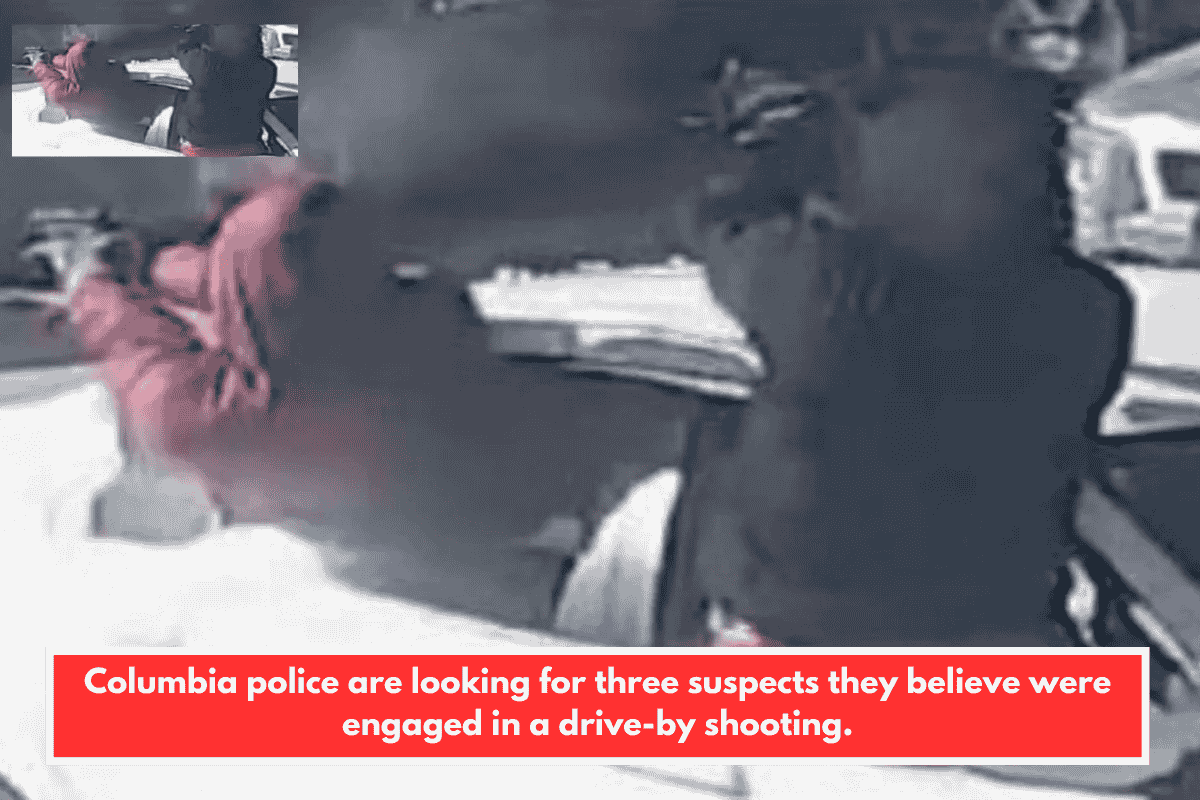In Illinois, as in many other states, the act of flipping someone off — commonly referred to as making an obscene gesture — can raise legal questions, especially if directed at law enforcement officers. While it may seem like a harmless, if rude, action, it’s important to understand how this behavior could be viewed legally, particularly when it comes to interactions with police officers.
Flipping Off a Cop: Free Speech or Disorderly Conduct?
In Illinois, the simple act of flipping someone off is generally protected under the First Amendment, which guarantees freedom of speech. However, this protection does not mean that all behavior is free from consequences, especially when it comes to interactions with law enforcement.
Free Speech and the First Amendment
The First Amendment to the U.S. Constitution protects citizens’ rights to express themselves, which includes making obscene gestures like flipping someone off. In many cases, making such a gesture in public is considered a form of expression and is generally not criminalized by itself. Courts have historically ruled that the First Amendment protects individuals’ right to express themselves in various ways, even if those expressions are offensive to others, including law enforcement officers.
When Can Flipping Off Become Illegal?
Although flipping off a police officer may not be illegal under free speech protections, it can become problematic if it escalates into other forms of illegal conduct, such as:
Disorderly Conduct: Under Illinois law (720 ILCS 5/26-1), disorderly conduct occurs when an individual causes a disturbance that alarms or disturbs others. If a person flips off a police officer in a manner that disrupts public peace or leads to a confrontation, it could potentially be viewed as disorderly conduct, especially if the gesture leads to a verbal or physical altercation.
Obstruction of Justice: If flipping off an officer is part of an attempt to prevent the officer from doing their job, such as interfering with an arrest or investigation, it could be considered obstruction of justice, which is a criminal offense in Illinois.
Threatening Behavior: If the gesture is accompanied by threatening words or actions, it could be classified as harassment or intimidation. Illinois law defines harassment as using obscene or offensive gestures with the intent to harass or provoke another person. If the gesture is deemed to be part of a broader pattern of harassment, the individual could face charges.
Incitement to Violence: If the obscene gesture is used in a context where it could lead to violence, either against the officer or others, it could be considered incitement. For example, if flipping off a police officer causes an immediate threat of violence or puts others in danger, it could result in legal action.
Legal Precedents and Case Law
In recent years, there have been legal cases in other states where courts have ruled that flipping off a police officer was protected by the First Amendment. However, this does not mean that every instance of flipping off an officer is protected. The context in which the gesture is made and the officer’s response will play a significant role in determining whether any legal action is taken.
For example, in Illinois v. Johnson (2015), a court ruled that a man’s gesture of flipping off a police officer was protected under the First Amendment because it was deemed to be free speech. The court emphasized that expressing frustration or anger, even through an obscene gesture, does not necessarily warrant arrest or punishment unless it leads to more serious illegal activity.
What Should You Know?
While flipping off a police officer may not immediately lead to criminal charges in Illinois, it can still result in negative consequences, including:
Escalation of Tensions: Even if the act itself isn’t illegal, it can escalate tensions between citizens and police officers, potentially leading to more serious encounters.
Potential for Arrest: If the gesture is part of a broader pattern of disruptive behavior, it could lead to charges such as disorderly conduct, obstruction, or resisting arrest.
Risk of Violence: Flipping off an officer, especially in a highly charged situation, could provoke anger or retaliatory actions, potentially resulting in an unsafe situation.
In Illinois, flipping off a police officer is generally not illegal as an isolated act due to protections under the First Amendment. However, if the gesture is accompanied by behavior that disrupts public peace, leads to a confrontation, or obstructs law enforcement duties, it could result in charges. It is always important to be mindful of how actions might be perceived and how they could escalate situations with law enforcement.
SOURCES
[1] https://mywaynecountynow.com/is-it-illegal-to-flip-off-a-cop-in-illinois-heres-what-the-law-says/
[2] https://www.shubinlaw.com/flipping-off-police-officers-constitutional-federal-court-affirms/
[3] https://www.findlaw.com/legalblogs/criminal-defense/do-you-have-the-right-to-flip-off-cops/
[4] https://www.talksonlaw.com/briefs/can-you-be-arrested-for-giving-the-finger-to-police
[5] https://www.illinoisdriverslicensereinstatementlawyer.com/amp/fleeing-and-eluding-a-police-officer.html














